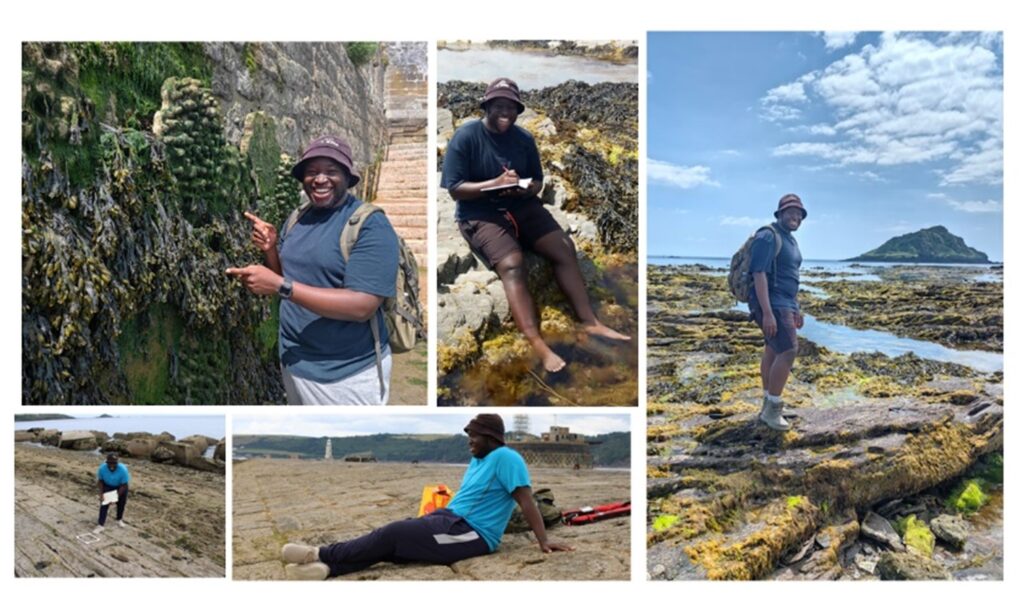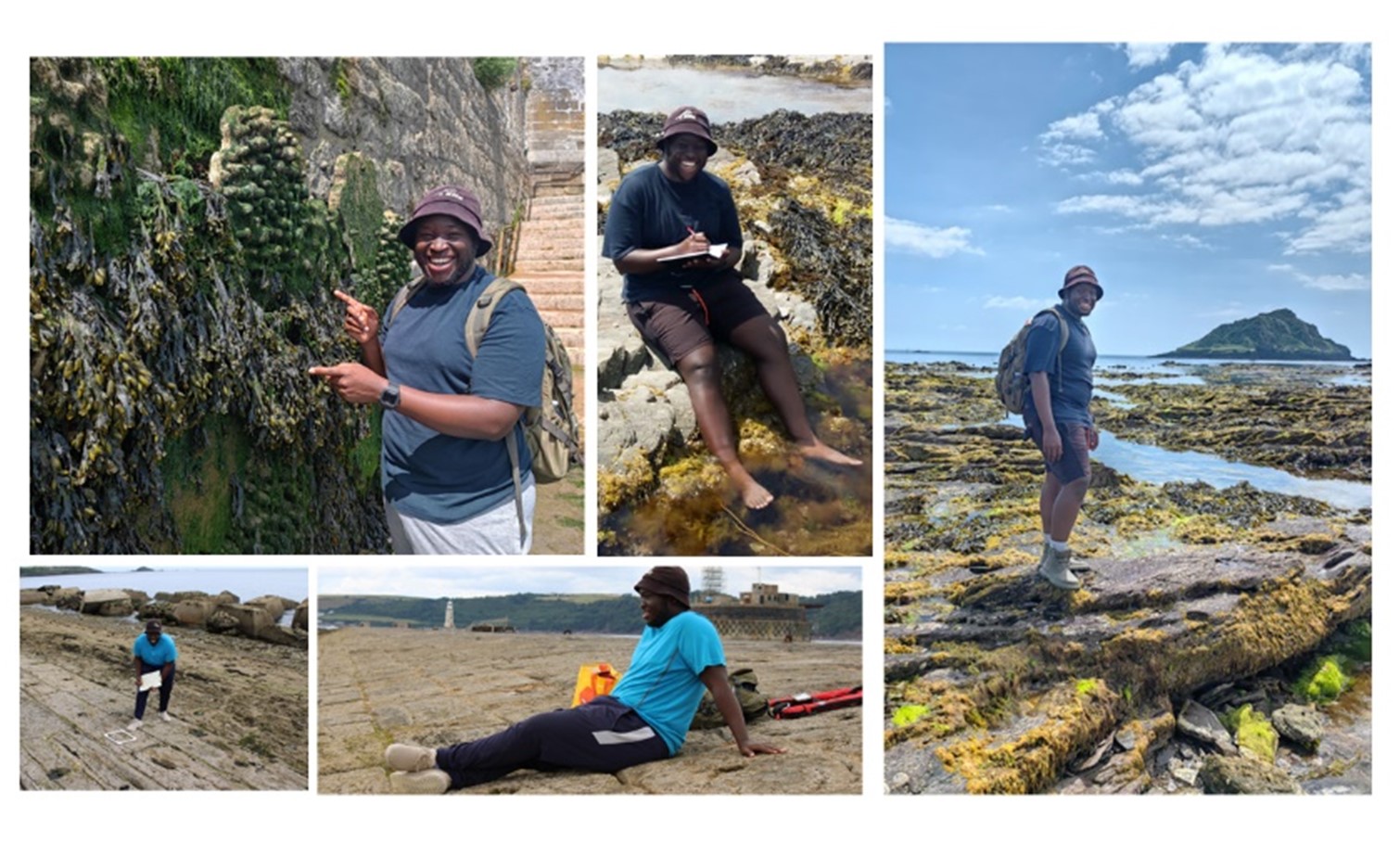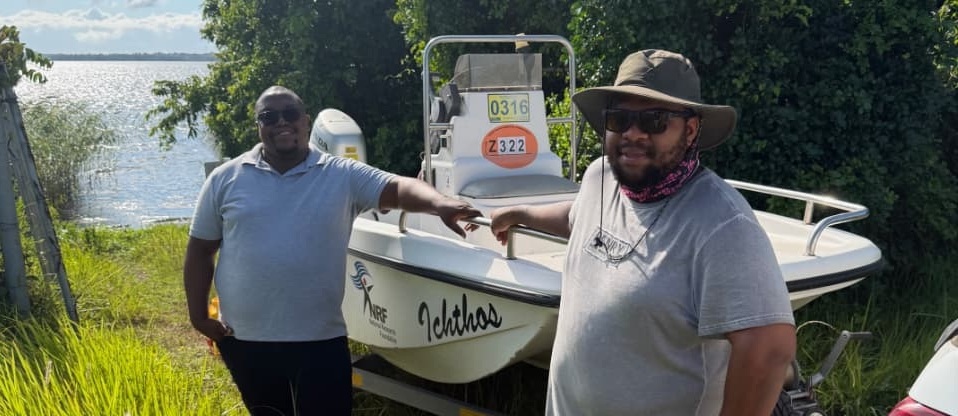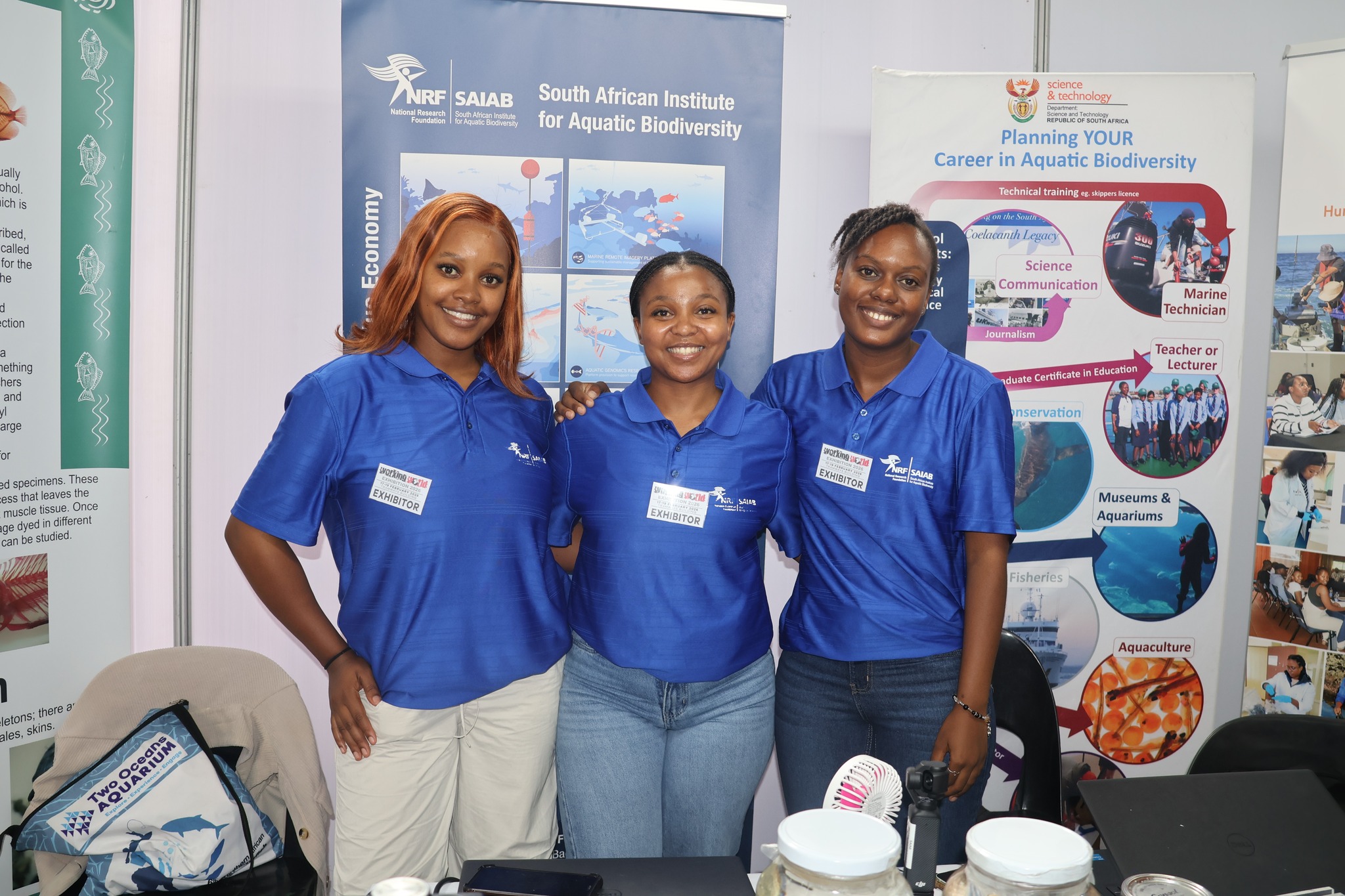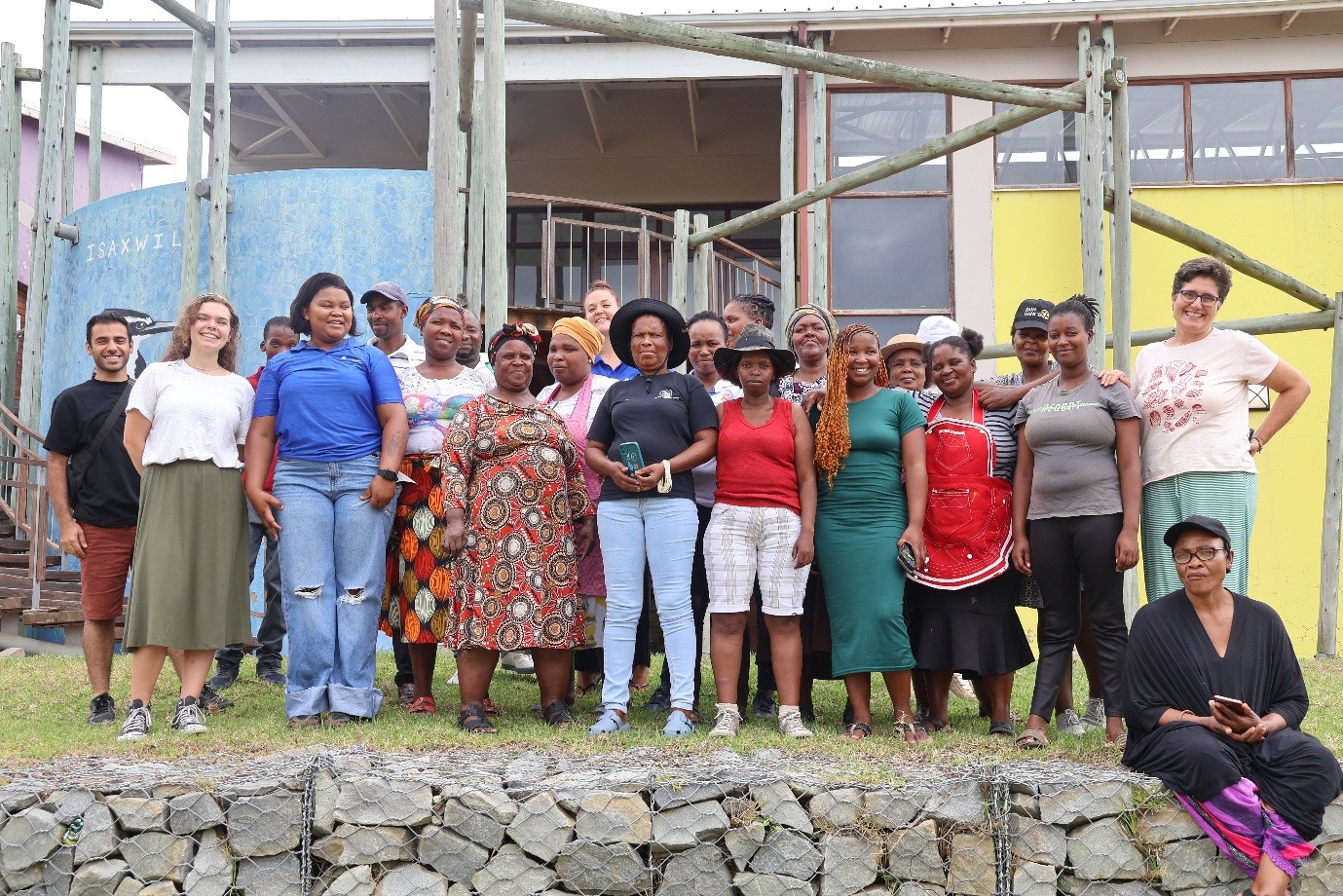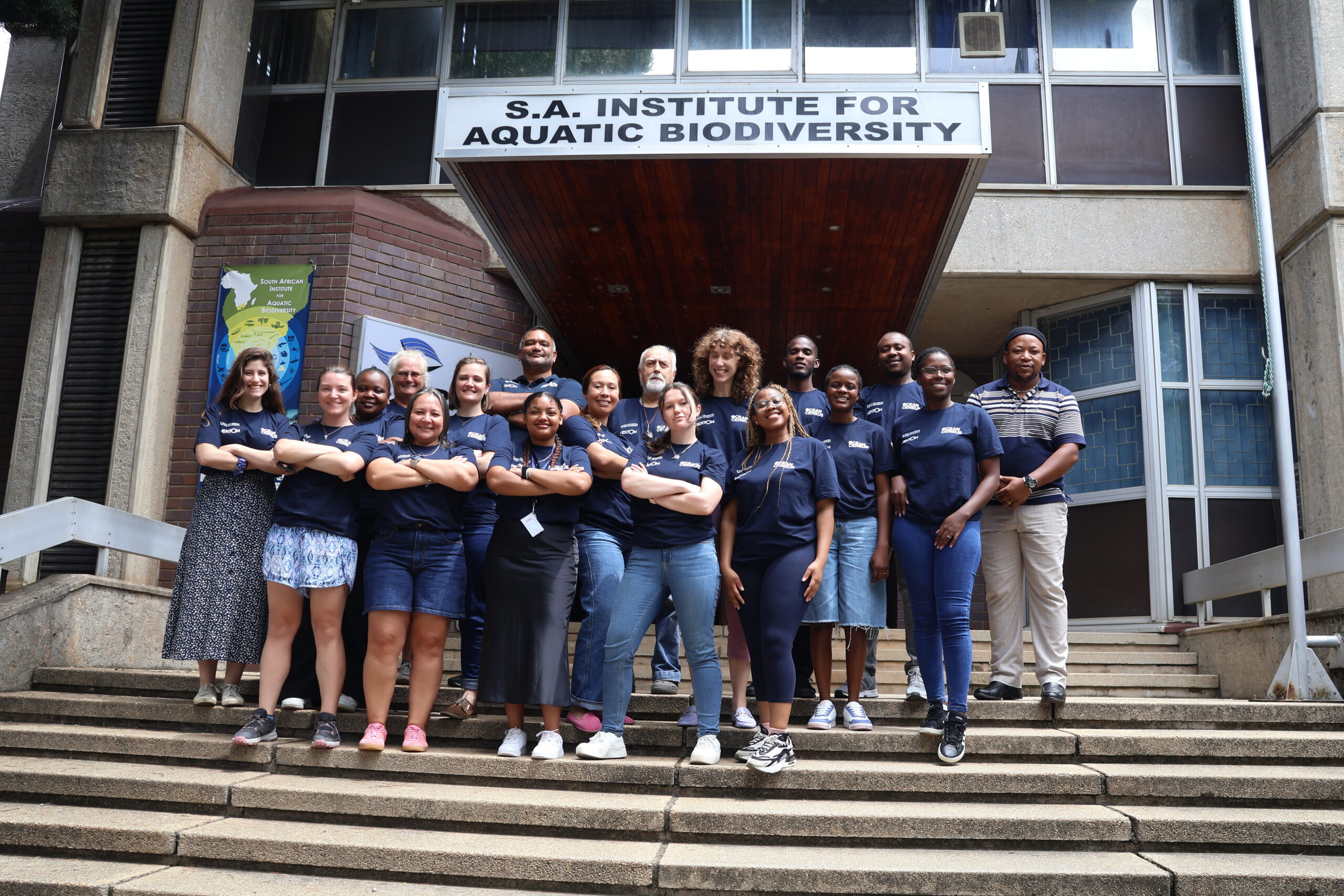By: Jabulani Ndaba (NRF-SAIAB PhD candidate)
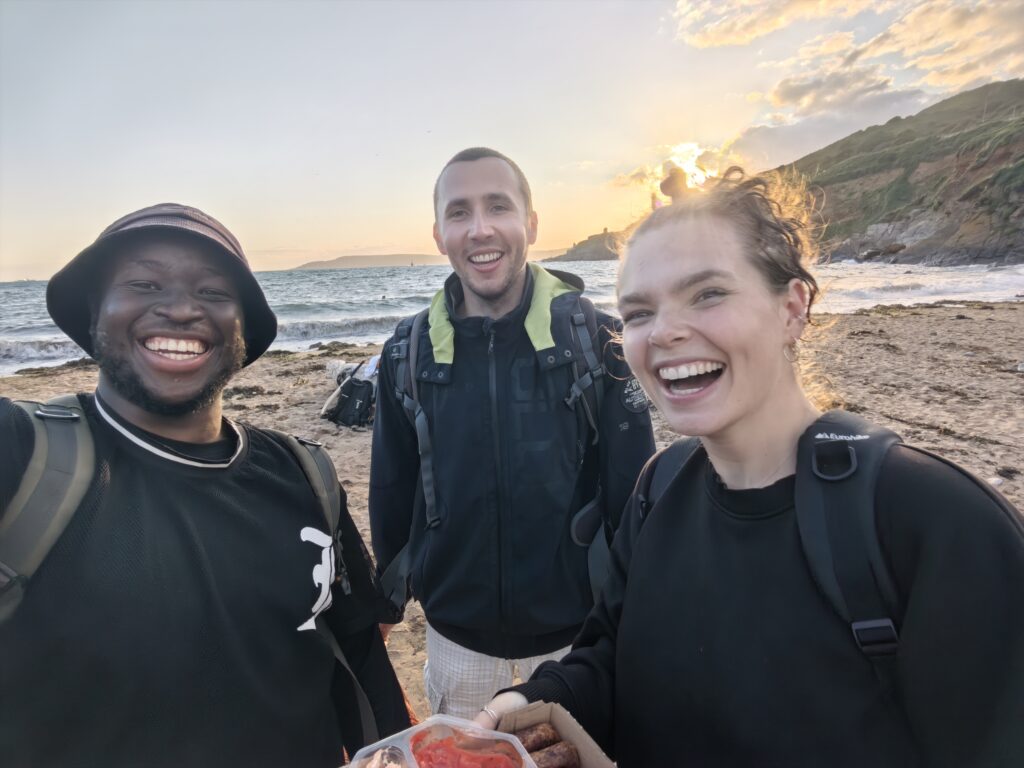
Jabulani Ndaba, a PhD student in the Coastal and Ocean Sciences Team (COST) at the NRF-South African Institute for Aquatic Biodiversity and registered at Rhodes University, recently completed a three-month collaborative research visit at the School of Biological and Marine Science at the University Plymouth, United Kingdom. This research visit is part of a larger international initiative aimed at exploring nature-based solutions for enhancing biodiversity in urban coastal areas while also investigating the ecological functionality of intertidal species across diverse environments. This project is part of a collaborative effort involving UK-based artist Shezaad Dawood, and Drs Louise Firth (formerly of the University of Plymouth, now at University College Cork), Mick Hanley, and Anäelle Lemasson from the University of Plymouth.
During his time at Plymouth, Jabulani focused on studying the thermal regulation properties of fucoid macroalgae and their impact on the biodiversity of understory species. He worked closely with Franz Bauer, a PhD student at the University of Plymouth, conducting fieldwork at Wembury Point and the Plymouth Breakwater.
This research explored how habitat-forming macroalgae create a more stable thermal environment, potentially serving as a refuge for various algal and invertebrate species. The preliminary results indicated that fucoid macroalgae play a significant role in buffering temperature, helping maintain a cooler and more consistent environment for understory species than open rock substrate. The provision of thermal stability is crucial for protecting species’ biodiversity. This is a significant finding, especially in light of rising global temperatures and climate change-related events. Jabulani emphasises that these crucial findings are particularly significant for South Africa, especially establishing monitoring systems in the context of nature-based restoration and conservation initiatives. This is particularly relevant when it comes to preserving macroalgal species, which are important in mediating temperature in coastal ecosystems. Jabulani further expressed that this collaboration was invaluable in advancing his professional and personal development beyond the academic experience gained during his visit. Working alongside Franz Bauer, Jessica Allen, and other colleagues at Plymouth deepened Jabulani’s understanding of marine ecosystems and helped establish strong personal connections. These friendships and shared experiences have added a special dimension to the project, showing that collaborative research is not just about academic progress but also about encouraging lasting relationships and creating shared memories along the journey.
